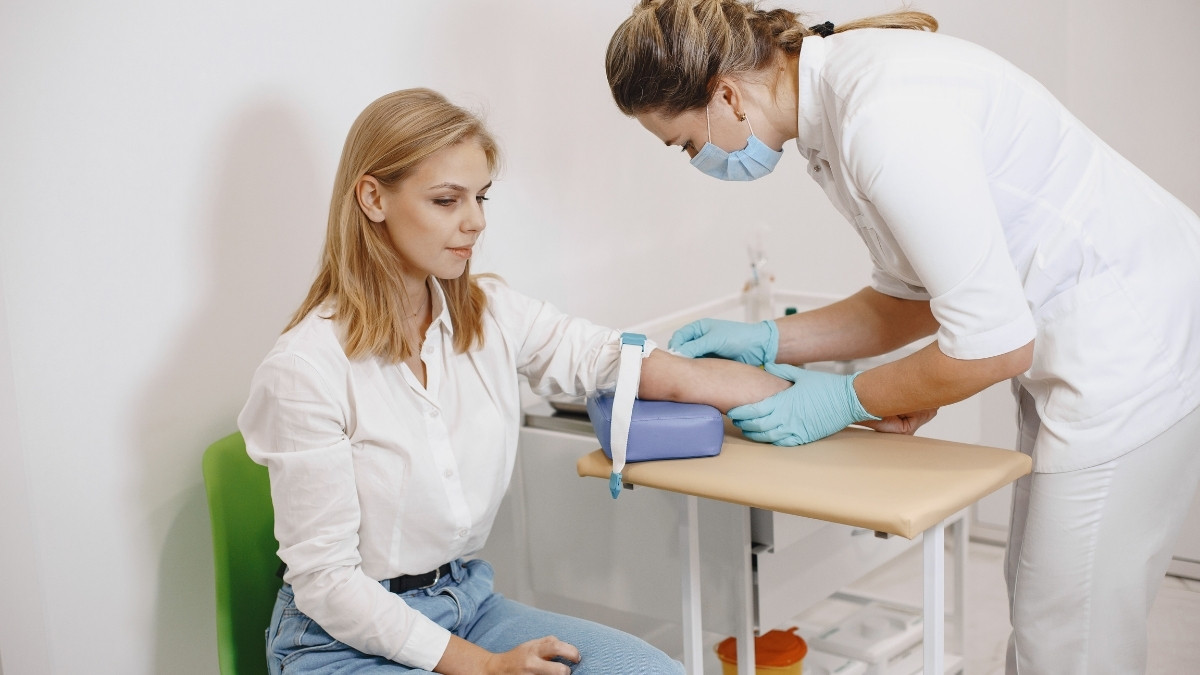Addressing Addiction in the LGBTQ+ Community
Understanding the unique challenges faced by the LGBTQ+ community is crucial when addressing addiction within this population. LGBTQ+ individuals encounter distinctive obstacles that can contribute to substance abuse disorders.
According to the National Survey on Drug Use and Health (NSDUH) as noted by.

Substance Abuse Statistics in LGBTQ+
Substance abuse remains a prevalent concern within the LGBTQ+ community, with a significantly higher prevalence compared to the general population. Approximately 20 to 30% of the LGBTQ+ community abuses substances, whereas only about 9% of the general population does so. These statistics emphasize the urgent need for tailored interventions and support services to address substance abuse in this community.
Impact of Discrimination and Stigma
The impact of discrimination and stigma on LGBTQ+ individuals plays a significant role in the development of addiction. Societal pressures can lead to common psychological and emotional disorders within the LGBTQ+ community, including depression, anxiety, anger, fear, and mental health disorders. These stressors and emotional distress are often linked to substance abuse as a coping mechanism.
Substance abuse within the LGBTQ+ community is interconnected with higher rates of mental illness. According to the Substance Abuse and Mental Health Services Administration (SAMHSA) as highlighted by (American Healthcare), individuals in the LGBTQ+ community are more than twice as likely to experience mental illness in their lifetime, which correlates with an increased risk of substance use disorders.
Recognizing the intersection of LGBTQ+ identity, mental health challenges, and substance abuse is critical in developing targeted interventions and support systems to address addiction within this community. By acknowledging the unique challenges and barriers faced by LGBTQ+ individuals, healthcare providers and addiction treatment specialists can tailor interventions to provide inclusive and affirming care for improved health outcomes.

Tailored Treatment Approaches
When it comes to addressing addiction in the LGBTQ+ community, tailored treatment approaches play a crucial role in promoting successful recovery and overall well-being. Understanding the unique challenges faced by individuals within this community is essential for providing effective support. Let's explore three key treatment approaches that have shown effectiveness in addressing addiction in the LGBTQ+ community.
Motivational Interviewing (MI)
Motivational Interviewing (MI) is one of the tailored interventions utilized in addiction treatment for the LGBTQ+ community. This approach focuses on empowering individuals to make positive changes by exploring and resolving ambivalence towards addiction. MI helps individuals identify their intrinsic motivations for change, build self-efficacy, and enhance their commitment to recovery. The supportive and non-confrontational nature of MI aligns well with the diverse needs of LGBTQ+ individuals seeking addiction treatment.
Cognitive-Behavioral Therapy (CBT)
Cognitive-Behavioral Therapy (CBT) is another effective therapeutic approach for treating substance use disorders in LGBTQ+ individuals. CBT aims to address harmful thought patterns and behaviors associated with addiction. By helping individuals identify triggers, develop coping strategies, and challenge unhealthy beliefs, CBT equips LGBTQ+ individuals with practical tools to manage cravings and prevent relapse. The evidence-based nature of CBT makes it a valuable component of addiction treatment for the LGBTQ+ community.
Co-Occurring Disorders
Individuals within the LGBTQ+ community are more likely to be diagnosed with co-occurring disorders, such as depression and anxiety, alongside substance use disorders. These co-occurring conditions can complicate the treatment journey and necessitate a comprehensive and integrated approach to care. Addressing co-occurring disorders concurrently with substance use disorders is essential for promoting long-term recovery and mental health stability among LGBTQ+ individuals. Recognizing and treating co-occurring disorders in a culturally competent manner is crucial for supporting the unique needs of individuals within the LGBTQ+ community [1].
By incorporating motivational interviewing, cognitive-behavioral therapy, and addressing co-occurring disorders in addiction treatment programs tailored for the LGBTQ+ community, healthcare providers and support systems can create a more inclusive and effective environment for individuals seeking recovery. Tailoring treatment approaches to meet the specific needs and challenges of LGBTQ+ individuals is essential for promoting positive outcomes and fostering long-term sobriety.

Creating Supportive Environments
Supporting individuals in the LGBTQ+ community through addiction recovery involves creating environments that are tailored to their specific needs. LGBTQ+-tailored programs, harm reduction strategies, and the importance of inclusive treatment play crucial roles in fostering a supportive and inclusive atmosphere for recovery.
LGBTQ+-Tailored Programs
Statistics show that an estimated 20 to 30% of the LGBTQ+ community abuses substances, which is significantly higher compared to about 9% of the general population [2]. To address this disparity, LGBTQ+-specific treatment centers have emerged as essential resources that cater to the unique needs of LGBTQ+ individuals. These specialized programs offer a safe and affirming space where individuals can receive care that is sensitive to their identities and experiences.
By incorporating LGBTQ+ affirmative practices into treatment, these programs help address underlying factors that may have contributed to addiction within the LGBTQ+ community. Through targeted interventions and support, LGBTQ+ individuals can access treatment that is culturally competent and supportive, leading to better outcomes compared to non-specialized programs.
Harm Reduction Strategies
The concept of harm reduction, designed to minimize negative health consequences, has deep roots in the LGBTQ+ community. Advocates within the community played a pivotal role in promoting harm reduction strategies during the AIDS crisis, sparking discussions on public health and fostering peer-to-peer support systems. These strategies have proven to be effective in addressing substance abuse by focusing on reducing harm rather than stigmatizing behaviors.
By embracing harm reduction principles, support systems can empower individuals in the LGBTQ+ community to make informed choices about their health and well-being. Providing access to resources such as needle exchange programs, overdose prevention initiatives, and counseling services can help mitigate the risks associated with substance use and promote healthier outcomes.
Importance of Inclusive Treatment
Creating an inclusive treatment environment is paramount in supporting individuals in the LGBTQ+ community on their journey to recovery. LGBTQ+ individuals often face discrimination and stigma, which can act as barriers to seeking help for addiction. Inclusive treatment settings that respect and affirm diverse gender identities and sexual orientations are essential in building trust and rapport with clients.
To promote inclusive treatment, providers should undergo training to understand the unique challenges faced by LGBTQ+ individuals and ensure that their programs are designed to meet the specific needs of this population. Offering LGBTQ+-affirming practices, culturally competent care, and creating safe spaces for expression can help foster a welcoming environment where individuals feel supported and can focus on their recovery journey.
By recognizing the importance of tailored programs, harm reduction strategies, and inclusive treatment approaches, we can take meaningful steps towards addressing addiction in the LGBTQ+ community and promoting long-term recovery and well-being.
Collaborative Initiatives
In addressing addiction within the LGBTQ+ community, collaborative efforts are essential to provide comprehensive support and resources. Policy makers, behavioral health experts, and the LGBTQ+ community must work together to advocate for affirming policies and establish effective peer-to-peer support systems.
Policy Makers and Behavioral Health Experts
Policy makers and behavioral health experts play a crucial role in shaping the landscape of addiction recovery for the LGBTQ+ community. By developing and implementing inclusive policies, they can help ensure that individuals receive the necessary support and access to tailored treatment approaches. Collaboration between these stakeholders is vital in addressing disparities and promoting equitable access to care.
Advocating for Affirming Policies
Advocating for affirming policies is key to creating a supportive environment for LGBTQ+ individuals seeking addiction recovery. Affirmative policies acknowledge the unique challenges faced by the LGBTQ+ community and aim to reduce barriers to treatment. By advocating for policies that prioritize inclusivity and cultural competence, policy makers can foster a more welcoming and understanding approach within the healthcare system.
Peer-to-Peer Support Systems
Peer-to-peer support systems are invaluable resources for individuals navigating addiction recovery, especially within the LGBTQ+ community. These systems offer a safe space for individuals to share their experiences, provide mutual encouragement, and offer understanding without judgment. By drawing on the strength and resilience of the LGBTQ+ community, peer-to-peer support systems help create a sense of belonging and solidarity among individuals in recovery.
Collaborative initiatives involving policy makers, behavioral health experts, and peer-to-peer support systems are essential in addressing addiction in the LGBTQ+ community. By working together, these stakeholders can advocate for affirming policies, provide tailored treatment approaches, and foster a supportive environment that promotes recovery and enhances overall well-being.
Building Resilience
In the journey of addressing addiction in the LGBTQ+ community, building resilience plays a critical role in fostering recovery and well-being. Embracing and acknowledging the rich tapestry of LGBTQ+ contributions is a vital step towards creating supportive environments that enhance health outcomes for individuals within this community.
Celebrating LGBTQ+ Contributions
Celebrating the myriad contributions of the LGBTQ+ community is not only a recognition of their invaluable impact but also a reaffirmation of their worth and presence in society. The advocacy work, creativity, and resilience displayed by LGBTQ+ individuals have significantly shaped harm reduction strategies and recovery support initiatives. From the response to the AIDS crisis to the establishment of peer-to-peer support systems, LGBTQ+ advocates have been at the forefront of driving positive change in addiction recovery support.
Promoting Resilience Factors
Research indicates that LGBTQ+ individuals in supportive environments exhibit higher levels of resilience (SAFE Project), highlighting the importance of cultivating environments that nurture resilience. Advocating for affirming policies, creating inclusive spaces, and offering sober alternatives to traditional social settings like bars and clubs are essential components in promoting resilience among LGBTQ+ individuals.
Enhancing Health Outcomes
The statistics reveal a concerning trend within the LGBTQ+ community, with higher rates of substance use and misuse compared to the general population. LGBTQ adults are more likely to use illicit drugs and suffer from substance use disorders. By focusing on celebrating LGBTQ+ contributions, promoting resilience factors, and advocating for inclusive and affirming environments, we can work towards improving health outcomes and reducing the impact of addiction within the LGBTQ+ community.
Addressing addiction in the LGBTQ+ community necessitates a multifaceted approach that not only tackles substance misuse but also champions resilience, celebrates diversity, and fosters inclusive support systems. By recognizing and amplifying the contributions of the LGBTQ+ community, we take a significant step towards building a more supportive and affirming environment for those on the journey of addiction recovery.
Addressing Mental Health
Within the context of addiction recovery, addressing mental health in the LGBTQ+ community is crucial due to the unique challenges this diverse group faces. This involves understanding the Minority Stress Theory, providing culturally competent care, and overcoming barriers to treatment to ensure effective support and rehabilitation.
Minority Stress Theory
The Minority Stress Theory highlights the impact of stigma and discrimination on health inequities among sexual orientation minorities. Research indicates that LGBT individuals undergoing substance abuse treatment often present with more complex needs, experience higher levels of mental health comorbidity, greater severity of addiction issues, and poorer physical health outcomes due to minority stress. This theory underscores the significance of addressing not only addiction but also the underlying factors contributing to mental health disparities in the LGBTQ+ population.
Culturally Competent Care
The provision of culturally competent care is essential for effectively supporting individuals within the LGBTQ+ community who are grappling with addiction. Studies reveal that behavioral and mental health practitioners may lack the necessary competence and comfort when working with LGBT clients, leading to potential barriers in accessing quality treatment. LGBT individuals report lower satisfaction levels and are less likely to engage in follow-up sessions if they encounter non-affirming behaviors from healthcare providers. Initiatives that promote inclusivity, diversity, and sensitivity toward the unique needs of LGBTQ+ individuals can enhance treatment outcomes and foster a supportive environment conducive to recovery.
Furthermore, offering LGBTQ+-tailored programs within mental health facilities plays a critical role in catering to the specific needs of this population. Research indicates that the availability of LGBT-specific programs varies across facilities based on factors such as service offerings, ownership structure, religious affiliations, and payment models. Public mental health facilities and those with religious affiliations are observed to be less likely to provide specialized programs tailored to the needs of LGBTQ+ individuals. Implementing services that are culturally tailored and affirming can bridge the treatment gap and promote better engagement and outcomes for the LGBTQ+ community.
Overcoming Barriers to Treatment
Challenges persist for LGBTQ+ individuals seeking treatment for substance abuse, including unique barriers that hinder access to care. These challenges often stem from healthcare providers overlooking the specific needs of LGBTQ+ individuals, coupled with a lack of culturally competent care. Moreover, the pervasive stigma surrounding both sexual orientation and substance abuse further complicates the treatment-seeking process for this marginalized group.
To facilitate effective treatment, it is imperative to recognize and address the distinct needs of the LGBTQ+ community comprehensively. Health professionals should consider the social, personal, and psychological aspects of their patients’ identities, tailoring treatment approaches to account for the societal rejection and ongoing discrimination they may face. By promoting understanding, openness, and inclusivity in addiction recovery programs, barriers to treatment can be mitigated, and the LGBTQ+ community can receive the support needed to achieve sustainable, long-term wellness.
References
[2]:
[3]:







